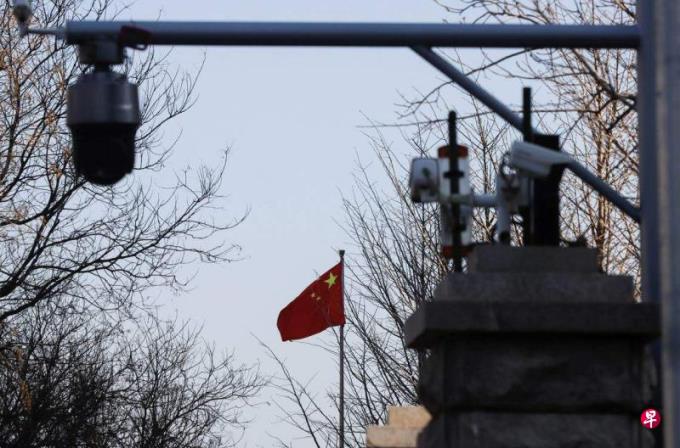
Since the reform and opening up, China's rule of law construction has made great progress and has made great development in the economy, but China's rule of law construction has not been completed.Regarding the main problems existing in the current construction of the rule of law, it can be discussed from the two major aspects: the authority of the law is insufficient, as well as the scientificity of legislative and law enforcement.
Once, former Federal Reserve Chairman Greens Pan was informatively asked: "What is the most important single promotion factor for economic growth?" He answered thoughtfully: "The rule of law.""It is an exception" (Tom Bingham): rule of law, China University of Political Science and Law Press, 2012, p. 57).This view can be called the exception of the rule of law level. Its meaning can be expressed as an exception country in China, that is, China does not have the rule of law, but it can achieve good economic growth.But does China's economic growth really depend on the corresponding progress of the rule of law?
I. China's exceptions and their logical defects
In fact, the Chinese exceptions at the level of rule of law have made a logical error, which confuses horizontal ratio and vertical ratio.
The rule of law in this view is obviously a modern rule of law developed in the West.With its reference, China is indeed not a country in rule of law, because Chinese officials have not intended to engage in the Western set. China implements socialist rule of law with Chinese characteristics.Normally.Therefore, in the context of comparable dimension, people can get a conclusion that China has no rule of law, and can also obtain the conclusions that seem to be more successful at present.However, this view lacks vertical ratio.Since the reform and opening up (1978), on the one hand, the Chinese economy has increased hugely; on the other hand, the construction of the rule of law in China has also made great progress.At least from the intuitive perspective, these two aspects show a significant positive correlation.After the reform and opening up, China's economic achievements are by no means, nor can it be obtained in the rule of law environment before reform and opening up.In addition, the fluctuations in China's rule of law will directly, rapid and significantly affect China's economic situation, and have a decisive impact on the Chinese economy.Therefore, China is not an exception country.
2. Before reform and opening up, rule of law and economic conditions
Before the reform and opening up, China implemented a planned economic system, which is not only an economic system, but also an economic embodiment of specific political ideas and political systems, and is implemented by a specific legal system.Before the reform and opening up, the national laws and regulations had a lot of restrictions on economic activities, and the people had almost no right to be free to engage in economic activities.In addition to engaging in limited economic activities in a very limited scope (such as self -study), independent production and free transactions are illegal or even criminal.
All aspects of society are interrelated. The economy is not a closed system. The political and legal system in the non -economic field will also significantly affect the economic situation, although this impact is sometimes indirect.It can even be said that economy is the realization of politics, political decision -making, and law determine the economy.For example, today's state -owned enterprises and private enterprises are different, it seems to be an economic phenomenon, but fundamentally, it is a political phenomenon and legal phenomenon.This difference is not natural, but this is the case.Before the reform and opening up, many actions that belonged to individual freedom and rights were severely restricted. People could not read, express opinions, explore innovation, and could not even flow and migrate freely. Almost everything was under the control of power.This has led to a serious lack of vitality in society, which hinders economic development.
Although the governors at the time did not deliberately want to make the economy, deliberately let the people hungry, but tried to use a specific way -the planned economy -to do a good job of the economy, but there was nothing compared toThe law is more powerful."It is not impossible to have both and." Although it is never impossible, it is often impossible.It is necessary to control all resources in the hands of officials, not to be distributed by labor, eat a large pot of rice, and even let people have relatives, allocate according to relatives, allocate according to power, and hope that people are full of labor enthusiasm. This is impossible.It is not allowed to read and discuss freely, and to set up various restricted areas, and to hope that people are creative, which is also impossible.
From this we can see that before the reform and opening up, China's economic situation was quite bad, and most people lived in a state of poverty.This corresponds to the status of the rule of law at that time.
Three, the rule of law and economic situation after reform and opening up
After the reform and opening up, the construction of the rule of law in China has made great progress.In terms of economic rights, the responsibility system for family coalition production enables farmers to have the right to cultivate the land.At the same time, farmers can migrate freely and can go out to work; people can engage in business, entrepreneurship, and foreign trade ... Therefore, the economy has become increasingly developed.
In terms of other rights, people can generally read and discuss freely; they can be free to fall in love and get married; they can go abroad to study; they can apply for patents, which can transform their knowledge into technology and commodities ... These are directly and significantly impactingly affecting the influence.The Chinese economy.
It can be said that after the reform and opening up, China's economic situation and the rule of law are corresponding.If the construction of the rule of law is more benign, the Chinese economy will definitely be better.
The above are all macro -levels, and even at the micro level, the economic situation is directly affected by the rule of law, and some administrative intervention will directly affect some industries.For example, the impact of the "double reduction" policy on the education industry; the impact of housing price control policies on the real estate industry; the impact of national incentive policy on artificial intelligence, especially the chip industry (here is only a neutral talk).Some people may question: Does economic activities need to be managed?Of course, management is required, but it is necessary to distinguish economic means, administrative means and legal means, and try to avoid administrative means.Even if the economic means such as price, taxation, credit, interest rates, and exchange rates are managed, it cannot be carried out at will, but it is necessary to carry out open, transparent, and professional demonstration and hearing.However, the current Chinese economy still has some administrative controls, and even the personal will of the leaders.Although these controls are not all the purpose of restrictions and targeting, but also for encouragement, the purpose of control is not the key, and the way of control is the key.
The above -mentioned changes in the rule of law before and after reform and opening up are very simple. In fact, this change is very extensive and complicated. Readers can ask the elders with related experience over 60 years of age or not to consult the information.Without comparison, there is no difference, and there is no advantage.The vertical history and horizontal world are good reference systems. Through comparison, more problems and corresponding improvements can be found.
What I want to apply for here is that some Chinese, especially young people, think that their living conditions are righteous. They should naturally eat and wear well, and they should eat well.Freedom in love, naturally you can apply for studying abroad, naturally you can start a business ... In fact, this is not the case at all.Even in developed countries in Europe and the United States, these are not natural.Europe and the United States have also experienced the tortuous process from the severe control of the Middle Ages to the free society.Italian thinker Bruno was sentenced to "heresy" by the religious court for supporting the Sympathetic theory and was burned to death; Italian scientist Galileo was forced to give up his doctrine by the church pressure;500,000 years, but because of his views with the Bible, he did not dare to publish in his lifetime (see the history of Peter Watson's thoughts, translation Lin Publishing House, 2018, p. 21); British philosopher Russel saidIn the early days of modern science, the church resisted Galileo's discovery, "Until 1835, the works of preaching the earth's movement have been listed as a ban" (Russell: Religion and Science, Business Press, 1982, p. 19) ... SoWithout the progress of the rule of law, it is impossible for Europe and the United States to achieve today's economic achievements and social achievements.
Regarding the relationship between the rule of law and the economy, we must also know that modernThe economy is different from the ancient economy.The ancient economy's requirements for innovation were very low, but the modern economy took innovation as the first driving force.At the same time, innovation is a high -risk and high -cost behavior.To motivate innovation, the rule of law of legislative science and law enforcement must be required, so that innovators have reasonable, stable and reliable expectations, and have the courage to innovate.
In any society, the prohibition of law is the boundary of people's legal behavior. The law can not be prohibited, but some boundaries are reasonable and some are unreasonable.Any society has a behavioral restricted area. The benign rule of law will determine as much scientific, reasonable, and fair behavior as possible, and minimize the restricted area as much as possible in order to allow people to have more choices, that is, more freedom.This is economic, that is, the economy is more vibrant.The key to the Chinese economy before the reform and opening up is that it is not reasonable to restrict too much; the key to success and opening up of reform and opening up can also be summarized as: reducing unreasonable restrictions (although not thorough enough).However, do not confuse the comparison and vertical comparison. A country has a benign rule of law, which does not mean that it will be able to win in international competition (comparison), but it must be higher than the level of development in the period of the rule of law (longitudinal ratio ratio (longitudinal ratio ratio)To.
Four, the main problem of the current construction of the rule of law in China
Since the reform and opening up, China's rule of law construction has made great progress and has made great development in the economy, but the construction of China's rule of law is far from complete.Regarding the main problems existing in the current construction of the rule of law, you can discuss from two major aspects:
First of all, the legal authority is insufficient.From time to time, there is such a situation: Although the legal provisions have made specific and clear rules, they cannot be effectively implemented, and there is a situation where power intervention laws, dispel the law, and even deny the law.The instructions are not as good as hints. "Sometimes, some law enforcers can take care of the clear provisions of the legal provisions in the phrase "this is a commander of the superior".This directly eliminates the authority of the law.
Secondly, legislative science and law enforcement justice is insufficient.Vague legislation, high standard legislation, universal illegal law, and selective law enforcement can be described as important issues in the current construction of the rule of law.
Vagueness can be described as the largest issue of legislation.The law should be accurate and clear, not to let people guess.The vague legislation means that the boundary of the legal behavior is blurred, and it is easy to make people be confusing or take opportunity.High standards refer to excessive standards that are difficult to achieve for certain behaviors.For daily examples, the speed limit speed at a speed of five kilometers per hour in some communities is not even as fast as fast walking, so few people follow.Vague legislation and high standard legislation have led to universal illegal illegal, which in turn gives law enforcement a huge tailoring space, so that it can selectively enforce the law, which leads to judicial corruption and wider enforcement corruption.This will also eliminate the authority of the law.
In summary, China is not an exceptional country.It can be seen that the Chinese economy must develop healthy, stable, and continuously high -quality, and a scientific and standardized benign rule of law must be used as an ecological foundation.In addition, in a wider sense, benign rule of law is also the most important source of people's sense of security and happiness.
The author is a professor at the School of International Relations of Sichuan University



